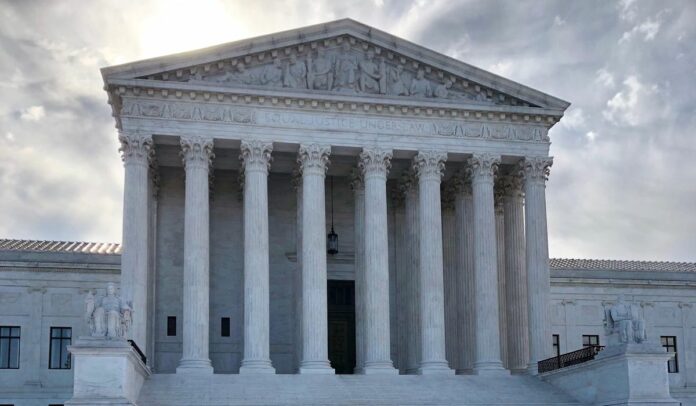The Supreme Court appeared divided down ideological lines Tuesday on whether House Democrats should be able to obtain President Trump’s personal financial records and tax returns in a case that could have an impact on the power of congressional subpoenas ahead of the 2020 election.
The justices heard arguments in a challenge brought by Mr. Trump against congressional Democrats’ attempts to obtain his business records and tax returns, which he refused to make public during the 2016 campaign.
The Democratic-led House Committee on Oversight and Reform last year subpoenaed eight years of Mr. Trump’s family and business accounting information. The April 2019 subpoena sent to Mazars USA, Mr. Trump’s accounting firm, requested documents “related to work performed for President Trump and several of his business entities both before and after he took office.”
The federal appeals court in Washington, D.C., upheld the subpoena, prompting Mr. Trump’s attorneys to go to the high court, which agreed to take the case.
Other House committees led by the Democratic majority have also issued subpoenas for Mr. Trump’s personal financial records and the cases were consolidated for oral argument in March, but due to the coronavirus pandemic, the justices rescheduled it for Tuesday via teleconference.
During the more than 60 minutes of arguments, the four Democratic-appointed justices voiced skepticism of halting Congress’ oversight power.
“There is a long, long history of Congress seeking records and getting them from presidents,” Justice Sonia Sotomayor said.
Douglas Letter, general counsel for the U.S. House of Representatives, told the high court the lawmakers’ subpoena is lawful so long as it is relevant to a conceivable legislative purpose.
But the president’s lawyers and the Justice Department argued the requests amount to harassment and violate the separation of powers, suggesting there is no legislative purpose in obtaining the documents.
They said if the subpoenas were upheld, it could lead to lawmakers continuously seeking personal records — like medical documents and educational transcripts — of a sitting president.
“The president’s personal papers are not related to anything to do with the working of the government,” said Patrick Strawbridge, an attorney representing Mr. Trump.
Chief Justice John G. Roberts Jr. asked the lawyer representing the House Democrats how harassment should be measured when there are several different House committees investigating the president, all seeking the same personal financial information.
“At what point does the number of committees investigating the president’s personal papers become a factor?” Justice Roberts quizzed.
Justice Clarence Thomas followed the chief justice’s questioning by noting, “At some point, there is a straw that breaks the camel’s back.”






